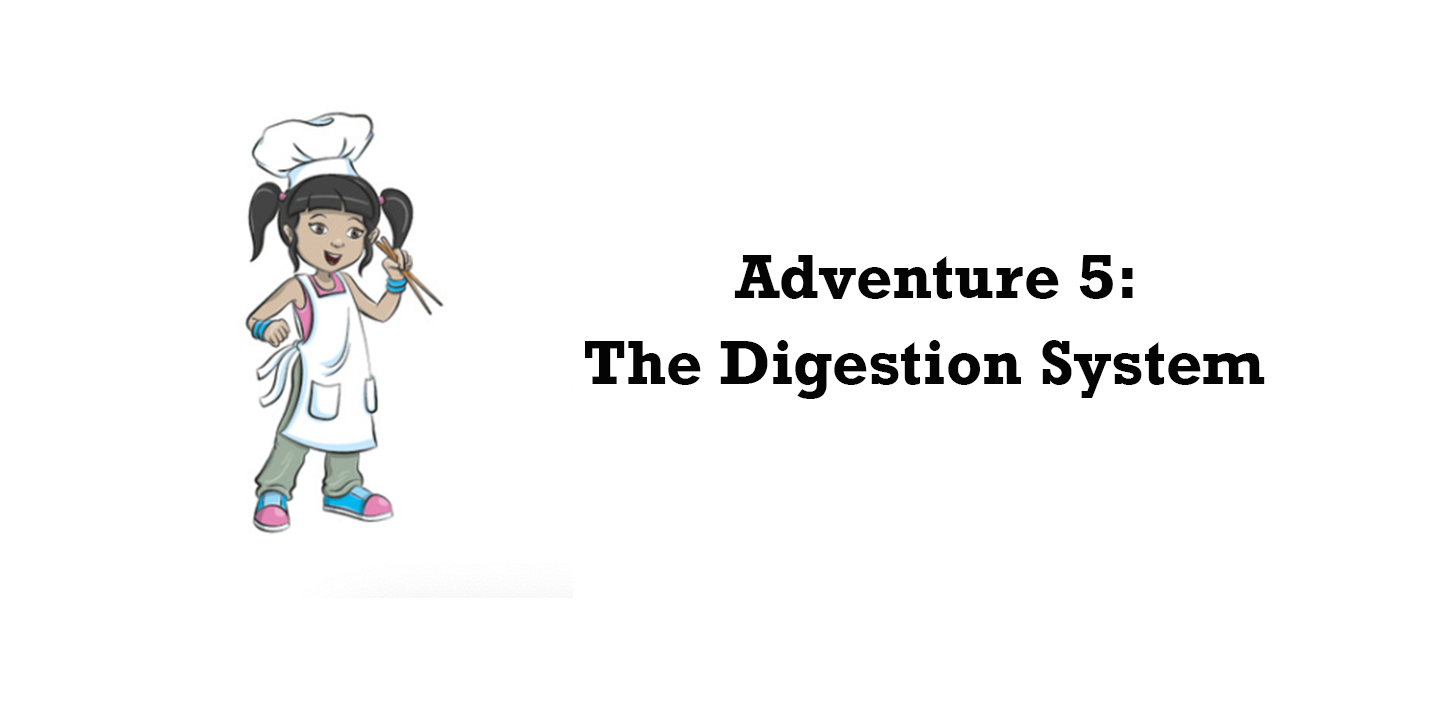
1. Move it, Move it!
Materials
If you’ve ever had trouble having a bowel movement (pooping), you might not have been getting enough fiber. Fiber is the non-digestible part of food that comes from eating a variety of whole grains, fruits, and vegetables. It’s what makes it easy for you to poop! Eating enough fiber helps prevent the feeling of constipation (or the feeling of not being able to poop).
Fiber works by binding itself to waste and water inside your intestines - basically by forming the bulk of a poop. It plays an important role in digestion by moving wastes and toxins through your intestines and outside the body.
One kind of fiber known for its ability to help people poop is called psyllium husk.It is often used to treat constipation and diarrhea because of its powerful water-absorbing abilities.
Try the activity below to see how fiber pulls in water inside of your intestines to begin forming a gel that supports digestion. Psyllium husk is made of mostly fiber - just two tablespoons contain 10 grams of fiber! To get that amount of fiber in your diet, you would have to eat almost 3 cups of brown rice, 5 large carrots, or 2 whole apples.
- Cup
- Tablespoon
- Psyllium husk (find it at your local health food store, or order it online)
- Water
Directions
- Place a cup on a flat surface.
- Using your tablespoon, add two tablespoons of psyllium husk into your cup.
- Pour in some water until your cup is almost full.
- Now take your tablespoon and stir the psyllium husk and water mixture.
- Witness what happens next!
2. Digestion Sensation
There are two different types of digestion that occur inside your body as you eat -mechanical andchemical digestion. Mechanical digestion refers to when you break things down with physical movement, whereas chemical digestion relies on enzymes that break food down into smaller digestible parts. These work together to turn food into something your body can absorb as energy, and waste that your body can excrete.
Your mouth is most well-known for its mechanical digestion (that's what your teeth are doing when they’re chewing), but there’s also some chemical digestion going on when you take that first bite. If you've felt your mouth water looking at delicious food, that's your body releasing saliva to help start the breakdown process. Your saliva contains enzymes which help to break down carbohydrates, proteins, and fats - kicking off digestion by mixing with your food! Before you swallow, enzymes are helping your body get one step closer to absorbing important nutrients from your food.
The stomach and intestines do even more chemical digestion. Acid inside your stomach helps chemically digest your food further (along with your stomach muscles which move and contract, performing mechanical digestion). Luckily you probably have never felt the breakdown happening after you are done eating - if you had, then you might have experienced acid reflux. After the stomach, your meal travels into the small intestine for nutrient absorption. Foods that require more processing before absorption, get one last shot in the large intestine before exiting the body as waste.
This experiment will give your mouth a bit of assistance in getting the process going.
Materials
- Bread with a thicker crust, not precut
- Orange juice or other acidic beverage
- Cup
Directions
- Cut a small piece of bread. Cut that piece in half so that each half has part of the crust.
- Eat the first half of the bread. Notice how much work you do to chew it and break it down so you can swallow it and send it on to the stomach.
- With the second piece of the bread, dip it in the orange juice first to absorb some liquid before eating it.
- Pay attention to how the orange juice affects the bread, especially the crust.
- If you want, drink some orange juice while the bread is in your mouth as well. Feel how it softens the bread by breaking it down bit by bit. By drinking the orange juice, you are actually assisting with mechanical and chemical digestion! You might notice how when the bread is moist, it’s actually easier to chew inside your mouth - mechanical digestion. It’s also softer and broken down into a small mass of food that can more easily be prepared in your stomach for the intestines - chemical digestion.









Leave a comment (all fields required)